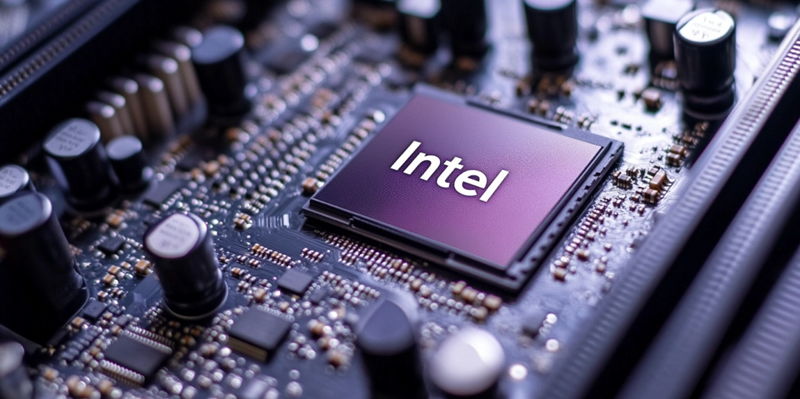The tech world has been buzzing with discussions regarding AMD’s innovative 3D V-Cache technology, especially following the impressive performance of the Ryzen 7 5800X3D in both gaming and productivity workloads. Enthusiasts and industry experts alike are curious about whether Intel will adopt a similar approach for its desktop gaming CPUs. However, Intel’s current stance suggests otherwise, preferring to preserve this technology for its server market. This strategy is part of a broader differentiation as Intel and AMD pursue different goals with their respective innovations.
Intel’s Tech Communications Manager, Florian Maislinger, recently commented that AMD’s “X3D” processors, with their substantial cache enhancements, are tailored primarily for gamers. He emphasized that catering to this specific audience may not be worth the compromises involved in using tiled-cache technology for desktop CPUs. While AMD has found a niche in delivering high performance for gamers, Intel appears to be less convinced that the benefits of such technology justify its widespread adoption in desktop environments.
Instead of focusing on the niche gaming market, Intel has indicated that it sees more value in applying this technology to its server and workstation processors. This decision hints at potential integration in future lineups, including the next-gen Clearwater Forest SKUs. The key takeaway is that Intel recognizes the performance enhancements provided by additional cache, but it believes these advantages are more suited to professional applications rather than consumer gaming setups. By prioritizing servers and workstations, Intel aims to address more comprehensive market demands that extend beyond the gaming enthusiast community.
This strategic move has a broader implication on Intel and AMD’s market positioning. While AMD continues to push the boundaries by integrating large cache sizes into its desktop CPUs to fill performance gaps, Intel is focusing on different market segments. The approach is reflective of a nuanced strategy where AMD targets gamers and high-performance workload users, whereas Intel centers its innovations on the diverse needs of the server market. This decision to forgo tiled-cache technology in gaming CPUs indicates Intel’s assessment that the broader commercial market holds more promise and necessity for such advancements.
In conclusion, Intel’s stance showcases a calculated approach to technological advancements in the world of CPUs. Both companies are aware of the benefits provided by enhanced cache technologies, but their strategies diverge significantly. AMD has chosen to capitalize on the gaming market, leveraging 3D V-Cache to offer gamers a notable performance boost. On the other hand, Intel has decided to reserve these innovations for the server and workstation segments. This nuanced deployment reflects Intel’s focus on addressing broader professional and commercial needs, which it perceives as a more valuable and less niche segment than the gaming market.

